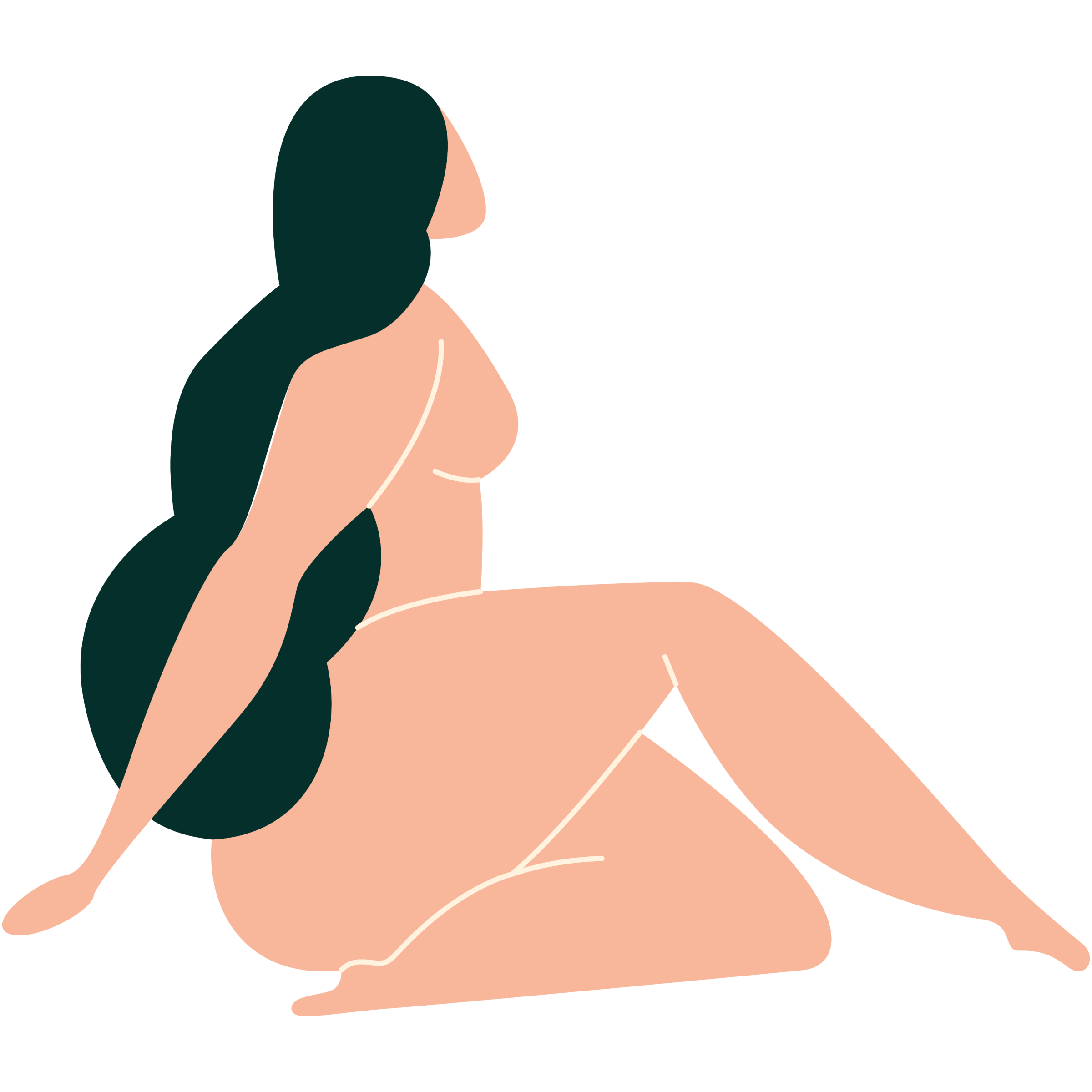
Body
Get to know your body through a better understanding of your anatomy and find the answers to some of your most common questions.

At 13, I remember sitting in a doctor’s office, utterly confused. My periods were a mystery to me—heavy, painful, and irregular. I didn’t know much back then, except that something felt wrong. After running some tests and poking around with questions, the doctor uttered three words that finally labeled what I had been experiencing: Polycystic Ovary Syndrome, or PCOS.
At the time, I couldn’t fully grasp what it meant, but I quickly learned that my unpredictable periods weren’t “just a phase.” PCOS had an explanation, though it didn’t bring much comfort at the time. The solution offered? The birth control pill. I was 14, handed a pack of pills, and told this would “regulate” my cycle. And, sure, for the next 10 years, I had what looked like a regular cycle, but in hindsight, it was like putting a bandaid on something that required deeper understanding.
The decision to stop the pill felt empowering, like I was finally taking control of my own body.
Fast forward to my early twenties. I had been on the pill for a decade and started wondering if maybe it was time to come off it. My body had been relying on synthetic hormones for so long that I wanted to know what was going on underneath. The decision to stop the pill felt empowering, like I was finally taking control of my own body. But that empowerment quickly turned into frustration when I didn’t get my period for months. And then, months turned into a full year.
For the first time in my life, I started wondering if my body was telling me something, rather than just act out of sync for no reason.
I went back to my doctor, who not-so-kindly told me there was nothing that could help with PCOS besides getting back on the pill. I didn’t want to believe it, it was impossible that, in 2020, the pill was still the only thing we were giving women for PCOS. For the first time in my life, I started wondering if my body was trying to tell me something, rather than just act out of sync for no reason.
I took the time to do my own research, talked to other women across the world, consulted with different doctors and professionals, and found that PCOS is more than just a reproductive disorder—it’s deeply tied to insulin resistance. My mind was blown. In the 10 years since I was diagnosed, no one had ever told me that managing insulin levels could be key to managing PCOS. It suddenly clicked why I had always struggled with my weight, sugar cravings, and energy levels.
It was around this time that I discovered inositol, a supplement that mimics the effects of insulin in the body. It felt like a light-bulb moment. International gynecologists recommended it and the research was there to support claims that it did, in fact, work. I started incorporating it into my routine alongside diet and exercise changes, focusing on stabilizing my blood sugar levels. I was making sure to see a diabetologist in the process to ensure inositol was safe for me to take instead of the usually prescribed metformin. Slowly but surely, my cycle started to return—not in the “perfect” 28-day textbook fashion, but in a way that was more natural to *me*. And I was okay with that.
PCOS and insulin resistance go hand in hand for many women. Essentially, insulin helps regulate your body’s use of sugar (glucose). When you have insulin resistance, your body has a harder time processing sugar, which leads to higher insulin levels, triggering the ovaries to produce more androgens (like testosterone), which disrupts ovulation. It’s a vicious cycle, literally! But inositol works to help with insulin sensitivity, breaking that cycle and improving symptoms of PCOS like irregular periods, acne, and excess hair growth.
I realized that my period wasn't something to be "fixed." It was like a monthly report card on my overall health.
The biggest game-changer for me was learning to listen to my body and what it was telling me through my cycle. I realized that my period wasn’t something to be “fixed” or made perfect; it was a direct reflection of how my body was functioning. It was like a monthly report card on my overall health. Was I stressed? Eating poorly? Over-exercising? My period was the first thing to tell me when something was off.
It took a long time—15 years to be exact—but I’ve come to a place of peace with my body. My cycle is not 28 days on the dot. It ebbs and flows, just like my life. When I have a 35-day cycle or miss a month, I now view it as my body waving a little red flag, signaling that something is out of balance. And instead of panicking, I listen. Maybe I need more rest, or perhaps I’ve been overdoing it at the gym. Maybe I need to focus on nourishing foods and managing stress. Whatever it is, I’ve learned that my body is speaking to me, and it’s my job to pay attention.
I’ve learned to manage my PCOS by embracing diet changes, adding supplements like inositol, and tailoring my exercise routine to what my body can handle. More importantly, I’ve accepted that my cycle will never be “perfect,” and that’s okay.
For anyone reading this who has been diagnosed with PCOS, or suspects they might be dealing with it, know that you are not alone. The journey can feel isolating at times, especially when everybody is so different. But take heart—there is no “one size fits all” approach. I’ve learned to manage my PCOS by embracing diet changes, adding supplements like inositol, and tailoring my exercise routine to what my body can handle. More importantly, I’ve accepted that my cycle will never be “perfect,” and that’s okay.
At the end of the day, PCOS has taught me to listen to my body, to treat it with kindness, and to trust that when something is off, it’s not a failure—it’s simply a message. And I’m finally listening.
Disclaimer: The information provided here does not constitute medical advice. Always consult a qualified healthcare professional before taking any medication.
Did you find the answer you were looking for? Is there something we missed? What did you think of this resource? We want to hear from you.
